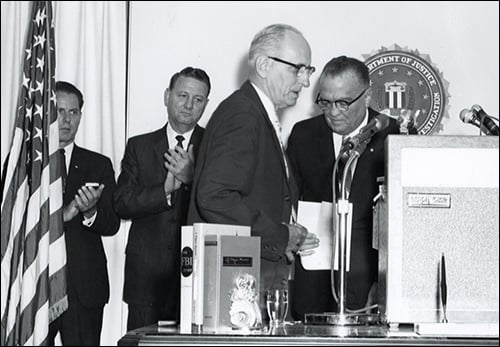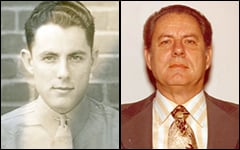A Leader Emerges
Roy Moore had seen the Klan in action, and he knew what he was up against.
While head of the FBI's office in Little Rock, he was asked to lead a special squad investigating the KKK's 1963 bombing of the Sixteenth Street Baptist Church, which had killed four African-American girls and injured many more.
So when the call came on July 2, 1964 from FBI Director J. Edgar Hoover, Special Agent in Charge Moore was ready. Later that afternoon, the historic Civil Rights Act would be signed into law, and President Lyndon B. Johnson had already instructed Hoover's FBI, which was about to gain new authorities, to establish a stronger presence in Mississippi. Hoover Moore Jackson
At the time, Mississippi Hoover Moore Hoover
The morning after the July 4 holiday, Moore Jackson Hoover Mississippi
For Moore Mississippi









No comments:
Post a Comment